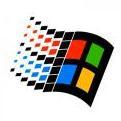Leaderboard
Popular Content
Showing content with the highest reputation on 08/27/2018 in all areas
-
The real alarm bell that should have gone off was not that OneDrive didn't support MS program files, but the reasons why it would exclude them. So it is obviously not doing just a file copy when it is copying files to the online folder, otherwise, it wouldn't matter if a file was a PST or not. I wouldn't be surprised if the file uploader is actually reading the contents of files before or during the file transfer.2 points
-
These drivers are derived directly from my Windows XP Professional x64 Edition (Volume License) install on my ASUS SABERTOOTH X99 Workstation. None of the drivers have been modified. They've been tested to work successfully on the ASUS SABERTOOTH X99 Motherboard. The download link is below! Please open the read me file for more information and what to expect; before proceeding with any driver installation. Download Link: http://www.mediafire.com/?1noclu654luf9 (Make sure to have 7-Zip so you can open the archive.) Enjoy!! - XP-x64-Lover1 point
-
Actually older and grumpier (besides cheap and extremely picky), in a few years you may be able to reach the same levels, however. jaclaz1 point
-
@curiosil That isn't helpful at all. Vista > 7 in my experience to be honest, but let's not drift too far off-topic. Is there any chance you can provide an installer that can auto-update some day to the latest test build, that when initialising you can set as the default browser/etc.? I'd say don't make it at all a priority but for the less technically inclined it would be a godsend...1 point
-
That's a good idea, make sure you have drivers for it though!1 point
-
While it's an interesting concept, I dislike Electron immensely... it's never going to have as decent performance as a native application.1 point
-
I'd personally recommend the K-Meleon Goanna builds as the most likely to work with XP/Vista since they use native Win32 stuff for the UX, unlike both Pale Moon and Basilisk. I also want to see ChatZilla and some other plugins be ported to KM That said, I'm sad to see 52 ESR go away. It will mean a lot of the less technically inclined XP/Vista users now will throw out their old hardware after it goes EOL. All distros of Linux except Debian 9 LXDE runs absolutely appallingly on my netbook, so it's XP or nothing.1 point
-
a. You save the firmware settings. b. You reboot to the install media. c. You try again installing the (stupid) Windows 8.1. Four possible outcomes: 1) you got the right setting and the install/setup won't ask you for a GPT disk/partition anymore 2) you got the wrong setting and install/setup will behave exactly as it did originally (in this case other possible settings in BIOS/UEFI may be needed) 3) no matter if the changed setting did anything, your PC will be struck by lightning or however catch fire instantly 4) *something else*[1] jaclaz [1] the *something else* includes a catastrophic overwriting of the hard disk, no matter if due to your mishandling of the procedure or to a malfuncioning of the proocedurte itself, hence the initial:1 point
-
1 point
-
thanks for your input but there's too much info there for a dummy like me. it is just not the ublock, I cannot install any addon in the Basilisk 55 there have been several releases (fixed bugs) over the last month on the 52 although I don't feel it as fast as the genuine Firefox on Windows 7 the big question: will there be either a Basilisk or PM version with quantum engine for XP ?1 point
-
I'm never abandoning XP! At least not for secondary uses... c1 point
-
Not strictly Windows 10 related, but close enough to be worth mentioning here, a good analysis/rant on OneDrive, aptly titled "OneDrive Down the Road to Madness": http://www.eejournal.com/article/onedrive-down-the-road-to-madness/ jaclaz1 point
-
Full discussion and limited solution for MTP/PTP on Win98/ME here: Portable devices via MTP driver in Windows 98 and here: Last Versions of Software for Windows 98SE (comment 967232)1 point
-
Sorry everyone for my absence, with MSFN losing my content and other information; as well as me going on "vacation" a few months ago, It's been difficult to stay in contact and also work on my projects since all my machines and tools were elsewhere... So, when I get back from traveling; which wont be long from now. I plan on finalizing my testing with my Ryzen motherboard; I got it specifically for XP x64, did tons of research before hand and will be doing more regarding personally testing it. This is something I am beyond passionate about; so I will do my best to make XP x64 work on Ryzen one way or another. Also, regarding guides and such pertaining to Intel x99 Sabertooth, AMD Ryzen, & possibly Newer Intel Boards; I will see about creating either video guides or simple step by step ones with screenshots. Either way, I will show everyone EXACTLY how I did it to get Intel x99 Sabertooth to work with XP x64, following my possible success with AMD Ryzen; I will do the same and so forth. Any new information will be posted here only. So, in other words I'd suggest following this post because there may indeed be some MORE useful information in the near future. Thank you for the support; I look forward to sharing my finding VERY soon! Take Care! - XP-x64-Lover1 point
-
I've been avoiding every update except the cumulative Internet Explorer security updates past December myself. My system is super stable at this point, running continuously all the time between software installs that require reboots. The way I figure it, it can only go downhill from here. I have never thought that mixing and matching system updates seemed like a good idea, and even putting the IE updates in (without all the others) always worries me a little bit, since it is more a part of the system than it sounds like it should be. So far I haven't had any problems with this strategy, though. And, without the performance robbing degradations my system still performs right up there with brand new high-end workstations, based on my comparing notes with some folks who have put together Xeon systems recently. -Noel1 point
-
@FranceBB Under Windows XP, which can not compete with modern encryption technologies, Avast can only control what Windows XP supports for HTTPS connections, meaning that every HTTPS web page is blocked where it is not verifiable. For this reason, you should deactivate the HTTPS scanning function in the Web Protection component of Avast!1 point
-
It's hard to generalize. Personally, I actually HAVE disabled both on my network facing system. I have enough protection (and discipline) in my environment here that malware never even gets close, and I especially have several layers of security blanket that keep my browsers and applications from visiting known bad sites online. Not to mention I turn that stupid UAC off (making a security Meltdown kind of a moot point). I guard the borders better and don't worry as much about policing microsecond by microsecond operation, which sounds like it may be your philosophy too. But everyone's needs are different. Would I suggest disabling the mitigations for the general public, especially those who are not technically savvy? Probably not. My point here is that even when disabled there's a significant performance penalty. I guess this must be because besides the memory manager reload operations that were added (and which can be disabled) the kernel and system software in Windows have been recompiled with changes to do certain operations a different, less efficient way to avoid meltdown concerns. I'm always looking for more detail on this, and I appreciate the discussion. The surprising part is that hardly anyone's talking about this! I guess it must be a combination of folks in general doing things that are not easily measurable and their systems already being burdened-up with a bunch of performance-sapping software, so what's one more little slowdown? -Noel1 point
-
I believe that NoelC uses Intel processors in all of his systems. I'm curious whether the same kinds of performance hits he has observed are also present in AMD processor based systems. Has anyone experienced that? In either case, besides avoiding Meltdown and Spectre specific patches and several other updates we've already been avoiding to prevent telemetry and downgrading to Win 10 etc, if MS has started using the cumulative update model for not only Win 10 but for Win 7 and 8.x as well, are there any updates since Dec 2017 that are safe (and useful? ) to apply to Win 7 and 8.x that will not have an appreciable impact on performance? Are we stuck using a Dec 2017 version of the OS from here on out? Yes I know that many folks comfortably use even older OS or take the approach of almost never applying updates except to address specific problems they might encounter, but I'm not sure I'm completely comfortable with that approach quite yet. I would be more comfortable with a revised list of updates to avoid, or a list of which updates are OK, if anyone is willing to maintain such a list. Something like an expanded version of the 'How to avoid being "upgraded to Win 10" against your will:', perhaps? But that's just me. Cheers and Regards1 point









